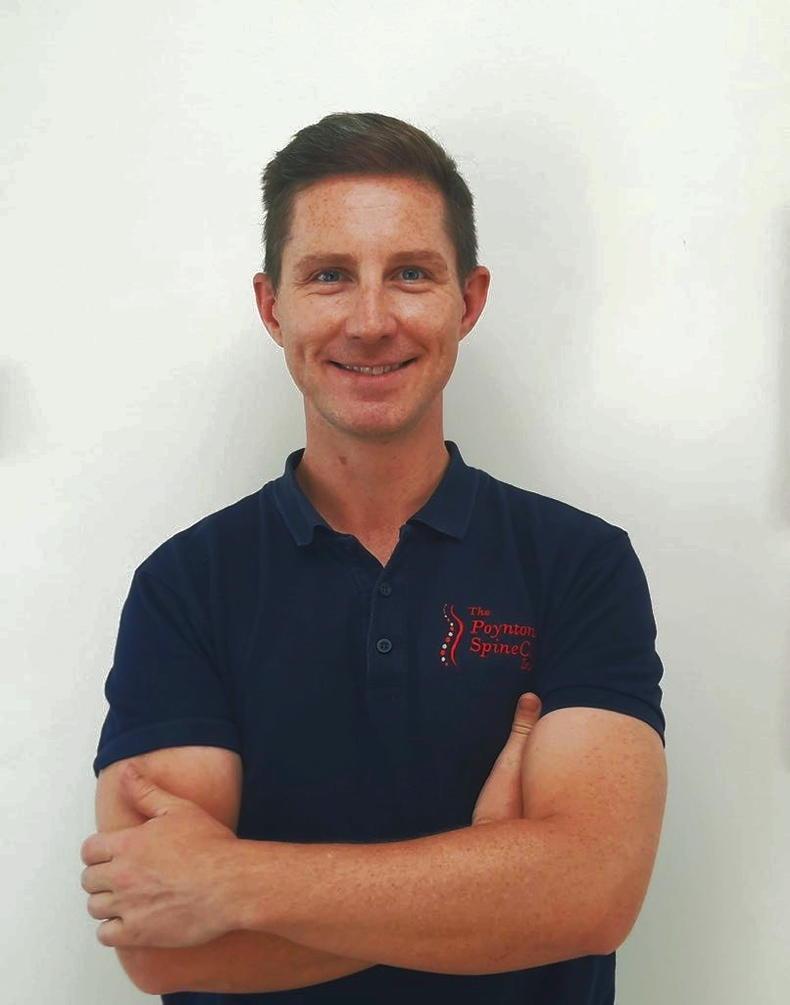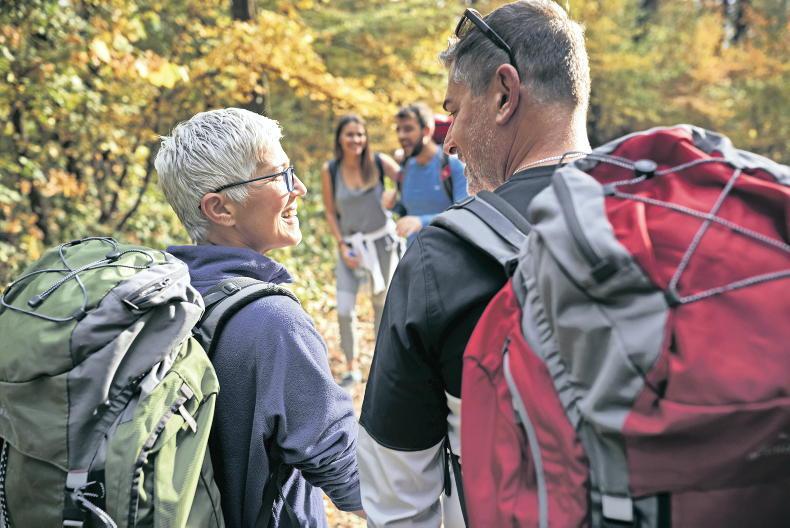Community; being part of something; ‘finding your tribe’ – all our crucial for personal growth and our emotional and mental health. Today’s fast paced technologically advanced world can often make us feel disconnected although we are more ‘connected’ than ever.
This sense of connection cannot be overstated. It is especially important for those feeling alone, isolated, marginalized, experiencing loss or faced with difficult times.
Community groups
Community groups have been shown to help support the well-being of older adults. They provide sources of personal security, social companionship, intellectual stimulation, collaborative learning and collective working. We are inherently social creatures and rely on each other for support, protection and companionship. Many people, particularly in rural parts of the country, can experience a sense of isolation. This can have a negative impact on our overall health.
Finding your tribe
‘Finding your Tribe’ has become a catchphrase in recent years, popularised by digital well-being specialists. A tribe, in this context, refers to a group of like-minded people who share common interests or goals and challenge our thinking. In a tribe, individuals find like-minded people who understand and appreciate them, creating supportive environments where you can be yourself. This may be family members, friends, co-workers, neighbours or a community group. Life is full of ups and downs and navigating the complexities of life can sometimes be overwhelming. Having ‘a tribe’ who understand and empathize with your experiences can help shoulder the burden and foster emotional resilience.

Stephen O'Rourke is a registered physiotherapist.
Social prescribing
Social prescribing is an initiative run by the HSE that aims to improve the well-being of adults who are socially isolated. The HSE-funded services are available from Family Resource Centres and community HSE partners such as Local Development Companies. You can contact your local Social Prescribing Link Worker directly or be referred by a health professional or community worker. The link worker will arrange to meet you, listen and guide you to what is available in your local area. It is a free support service designed to help reduce social isolation and improve people’s health and well-being.
Getting out and about
As adults, making new friends can be hard. Leaving our familiar safe environments and stepping out into our communities can be difficult as fear can often take hold. Technology has helped to keeps us connected with others far and wide. However, it has also resulted in us becoming more disconnected despite growing social media accessibility.
Striking a balance between online and offline interactions is essential for building meaningful relationships within a community. When surrounded by others who share similar passions or goals, there is a collective energy that helps everyone. Exchanging ideas, providing encouragement, and sharing experiences within community groups can help forge meaningful connections, providing a sense of fulfillment.
Volunteering, social clubs, Men’s Sheds, bingo, Tidy Towns, church, women’s circles, music groups, sports clubs and drama groups are just some of the type of community groups that might peak your interest. In a world where diversity is celebrated, finding a ‘tribe’ doesn’t necessarily mean surrounding yourself only with like-minded individuals.
Exposing yourself to different cultures and perspectives can broaden ways of thinking and your understanding of the world. Diversity fosters tolerance and empathy, something that is vital to appreciate the richness that comes from embracing new members in our communities.
This is particularly evident during challenging times. Whether facing personal crises, societal upheavals, or global pandemics, a supportive group can be a lifeline. The shared experiences and mutual understanding creates a safety net, offering comfort and assistance when it’s needed most. Strong communities create a ripple effect, strengthening the fabric of society as a whole.
Check in with your local Social Prescriber Link Worker to find out what community groups are active in your area.
Read more
'Good Posture vs Bad Posture'
Exercise: 'get moving in the menopause'
Community; being part of something; ‘finding your tribe’ – all our crucial for personal growth and our emotional and mental health. Today’s fast paced technologically advanced world can often make us feel disconnected although we are more ‘connected’ than ever.
This sense of connection cannot be overstated. It is especially important for those feeling alone, isolated, marginalized, experiencing loss or faced with difficult times.
Community groups
Community groups have been shown to help support the well-being of older adults. They provide sources of personal security, social companionship, intellectual stimulation, collaborative learning and collective working. We are inherently social creatures and rely on each other for support, protection and companionship. Many people, particularly in rural parts of the country, can experience a sense of isolation. This can have a negative impact on our overall health.
Finding your tribe
‘Finding your Tribe’ has become a catchphrase in recent years, popularised by digital well-being specialists. A tribe, in this context, refers to a group of like-minded people who share common interests or goals and challenge our thinking. In a tribe, individuals find like-minded people who understand and appreciate them, creating supportive environments where you can be yourself. This may be family members, friends, co-workers, neighbours or a community group. Life is full of ups and downs and navigating the complexities of life can sometimes be overwhelming. Having ‘a tribe’ who understand and empathize with your experiences can help shoulder the burden and foster emotional resilience.

Stephen O'Rourke is a registered physiotherapist.
Social prescribing
Social prescribing is an initiative run by the HSE that aims to improve the well-being of adults who are socially isolated. The HSE-funded services are available from Family Resource Centres and community HSE partners such as Local Development Companies. You can contact your local Social Prescribing Link Worker directly or be referred by a health professional or community worker. The link worker will arrange to meet you, listen and guide you to what is available in your local area. It is a free support service designed to help reduce social isolation and improve people’s health and well-being.
Getting out and about
As adults, making new friends can be hard. Leaving our familiar safe environments and stepping out into our communities can be difficult as fear can often take hold. Technology has helped to keeps us connected with others far and wide. However, it has also resulted in us becoming more disconnected despite growing social media accessibility.
Striking a balance between online and offline interactions is essential for building meaningful relationships within a community. When surrounded by others who share similar passions or goals, there is a collective energy that helps everyone. Exchanging ideas, providing encouragement, and sharing experiences within community groups can help forge meaningful connections, providing a sense of fulfillment.
Volunteering, social clubs, Men’s Sheds, bingo, Tidy Towns, church, women’s circles, music groups, sports clubs and drama groups are just some of the type of community groups that might peak your interest. In a world where diversity is celebrated, finding a ‘tribe’ doesn’t necessarily mean surrounding yourself only with like-minded individuals.
Exposing yourself to different cultures and perspectives can broaden ways of thinking and your understanding of the world. Diversity fosters tolerance and empathy, something that is vital to appreciate the richness that comes from embracing new members in our communities.
This is particularly evident during challenging times. Whether facing personal crises, societal upheavals, or global pandemics, a supportive group can be a lifeline. The shared experiences and mutual understanding creates a safety net, offering comfort and assistance when it’s needed most. Strong communities create a ripple effect, strengthening the fabric of society as a whole.
Check in with your local Social Prescriber Link Worker to find out what community groups are active in your area.
Read more
'Good Posture vs Bad Posture'
Exercise: 'get moving in the menopause'







 This is a subscriber-only article
This is a subscriber-only article










SHARING OPTIONS: